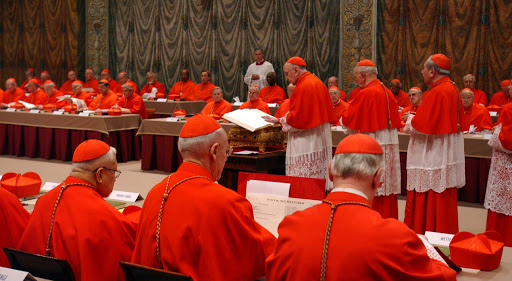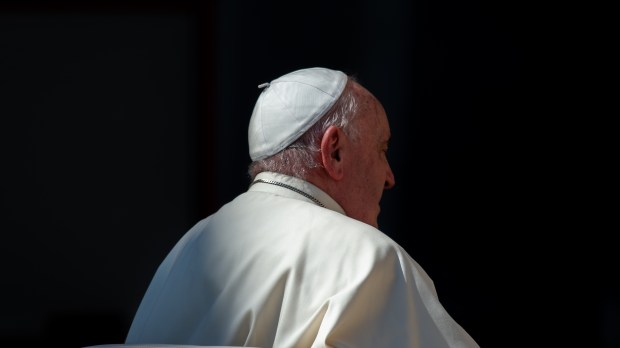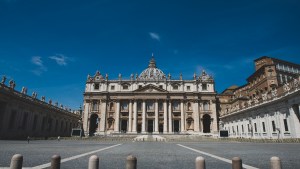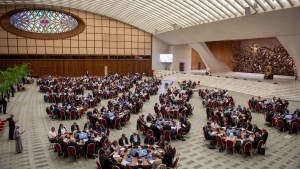At a time when the “rules” of the Synod on Synodality are being discussed, and when people are talking about pontifical secrecy applying to the debates, let’s take a look at what this term means.
The first session of the Synod on Synodality opened in Rome on October 4. The rules for the discussions bind the participants to confidentiality and discretion.
This was not unexpected, and there are good reasons behind it. The Pope himself, on his return from Mongolia at the end of September, explained:
One thing that must be safeguarded is the synodal atmosphere. It is not a TV show where people discuss anything and everything. No! It is a religious moment, a moment of religious exchange. […] Regarding the privacy of discussions: there is a department headed by Dr Ruffini [the Dicastery for Communication], who is here, and will issue press releases concerning the Synod’s progress. In a Synod, it is necessary to safeguard religiosity and safeguard the freedom of those who speak.
What does this so-called “pontifical” secrecy consist of?
Canon law doesn’t define it precisely, but it does say that anyone who violates it is liable to punishment. The truth is, however, that it is most commonly a matter of the secrecy necessary to the life of a state and its diplomacy. In everyday life, curia members in possession of sensitive information are obliged not to divulge it, as would be the case in any other country.
The same secrecy is applied to the Vatican archive, as to those of all states, even if Pope Francis decided in 2019 to name it the “Apostolic Archive” and no longer the “Secret Archive,” to avoid any suggestion that things might be hidden.
The secrecy associated with a conclave
In the life of the Roman Curia, pontifical secrecy is associated with the conclave where a new pope is elected, although such an event is obviously relatively infrequent.
To guarantee the freedom of choice of the cardinals and of the one to be elected, Pope John Paul II defined the rules governing the management of the vacancy of the apostolic see in his 1996 apostolic constitution Universi Dominici gregis. It deals at length with the question of secrecy, from its necessity to its practical implementation.

We read, for example, of the oaths on the Gospels made by the cardinals — and also by those who will approach them during the conclave (§48):
I, N.N., promise and swear that, unless I should receive a special faculty given expressly by the newly-elected Pontiff or by his successors, I will observe absolute and perpetual secrecy with all who are not part of the College of Cardinal electors concerning all matters directly or indirectly related to the ballots cast and their scrutiny for the election of the Supreme Pontiff.
I likewise promise and swear to refrain from using any audio or video equipment capable of recording anything which takes place during the period of the election within Vatican City, and in particular anything which in any way, directly or indirectly, is related to the process of the election itself. I declare that I take this oath fully aware that an infraction thereof will make me subject to the spiritual and canonical penalties which the future Supreme Pontiff will see fit to adopt, in accordance with Canon 1399 of the Code of Canon Law.
So help me God and these Holy Gospels which I touch with my hand.
This formula sounds similar to the rules for the Synod, aimed to guarantee that the members can enjoy freedom of exchange and, above all, the ability to listen to the Holy Spirit, the main Architect of the Synod. The rules say:
In order to guarantee the freedom of expression of each person’s thoughts, and to ensure the serenity of discernment in common — the principal task entrusted to the Assembly — each participant is bound to confidentiality and discretion regarding both his own interventions and those of the other participants. This duty remains in force after the end of the Synodal Assembly. […] All participants are forbidden to record, film, or divulge their interventions in the general congregations and working groups.
Indeed, as the Synod began the Pope decried the pressure that media interference and rumors have had on past synods. He called for a space in which participants can speak freely and in which all can listen to the Holy Spirit, preferring the word “confidentiality” to “secrecy.”
God makes himself present, not in hurricanes, but in the “a sound of sheer silence” (1 Kings 19:12).



